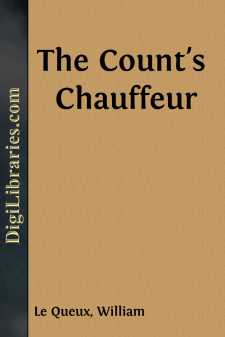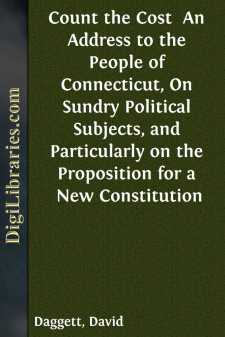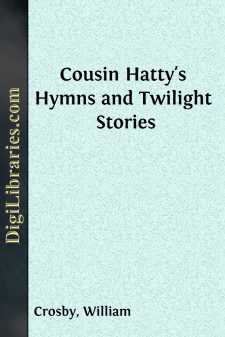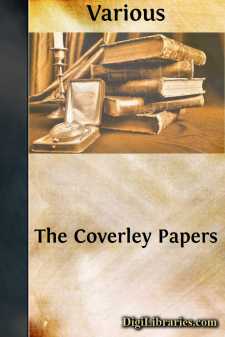Fiction
- Action & Adventure 180
- Biographical 15
- Christian 59
- Classics
- Coming of Age 5
- Contemporary Women 3
- Erotica 8
- Espionage/Intrigue 12
- Fairy Tales, Folklore & Mythology 236
- Family Life 169
- Fantasy 117
- Gay 1
- General 596
- Ghost 32
- Historical 808
- Horror 43
- Humorous 160
- Jewish 25
- Legal 4
- Medical 22
- Mystery & Detective 315
- Political 49
- Psychological 41
- Religious 64
- Romance 159
- Sagas 11
- Science Fiction 730
- Sea Stories 113
- Short Stories (single author) 537
- Sports 10
- Suspense 1
- Technological 8
- Thrillers 2
- Urban Life 31
- Visionary & Metaphysical 1
- War & Military 173
- Westerns 199
Classics Books
Sort by:
I. THE JILTING OF JANE. As I sit writing in my study, I can hear our Jane bumping her way downstairs with a brush and dust-pan. She used in the old days to sing hymn tunes, or the British national song for the time being, to these instruments, but latterly she has been silent and even careful over her work. Time was when I prayed with fervour for such silence, and my wife with sighs for such care, but...
more...
CHAPTER ITHE TWO OATHSOn an afternoon in the early summer of 1856 Captain Nathaniel Plum, master and owner of the sloop Typhoon was engaged in nothing more important than the smoking of an enormous pipe. Clouds of strongly odored smoke, tinted with the lights of the setting sun, had risen above his head in unremitting volumes for the last half hour. There was infinite contentment in his face,...
more...
by:
William Le Queux
A MOVE ON THE “FORTY” In Paris, in Rome, in Florence, in Berlin, in Vienna—in fact, over half the face of Europe, from the Pyrenees to the Russian frontier—I am now known as “The Count’s Chauffeur.” An Englishman, as my name George Ewart denotes, I am of cosmopolitan birth and education, my early youth having been spent on the Continent, where my father was agent for a London firm. When I...
more...
by:
David Daggett
AN ADDRESS TO THE PEOPLE OF CONNECTICUT. "FOR which of you intending to build a tower sitteth not down first and counteth the cost?" An interesting question is here asked by the direction of infinite wisdom. This question contains the following useful and important instruction: That no man or body of men should attempt the accomplishment of any great object without duly estimating the evils and...
more...
HODDER AND STOUGHTON LIMITED TORONTO To the Red Gowns of St. Andrews Canada, 1922 You have had many rectors here in St. Andrews who will continue in bloom long after the lowly ones such as I am are dead and rotten and forgotten. They are the roses in December; you remember someone said that God gave us memory so that we might have roses in December. But I do not envy the great ones. In my...
more...
by:
William Crosby
THE FIRST HYMN. God made the bright, round sun; He made the pretty flowers; The little birds, the trees, the clouds The rain that falls in showers. He made papa, mamma, And baby brother, too; And mother says He looks from Heaven, And sees each thing I do. Then I must try to be Pleasant, and sweet, and mild; For the good God who made me loves A kind, obedient child. Now again the yellow sun Shines upon...
more...
by:
Orson Lowell
THE MARTYRDOM OF "MEALY" JONES A WAIL IN B MINOR Oh, what has become of the ornery boy, Who used to chew slip'ry elm, "rosum" and wheat: And say "jest a coddin'" and "what d'ye soy;" And wear rolled-up trousers all out at the seat? And where is the boy who had shows in the barn, And "skinned a cat backards" and turned "summersets;" The boy...
more...
The girl and her chaperon had been deposited early in the desirable second-story window in Durfee, looking down on the tree. Brant was a senior and a "Bones" man, and so had a leading part to play in the afternoon's drama. He must get the girl and the chaperon off his hands, and be at his business. This was "Tap Day." It is perhaps well to explain what "Tap Day" means;...
more...
by:
Various
It is necessary to study the work of Joseph Addison in close relation to the time in which he lived, for he was a true child of his century, and even in his most distinguishing qualities he was not so much in opposition to its ideas as in advance of them. The early part of the eighteenth century was a very middle-aged period: the dreamers of the seventeenth century had grown into practical men; the...
more...
CHAPTER I. A MERRY GROUP. The Whitney household, in the western part of Maine, was filled with sunshine, merriment and delight, on a certain winter evening a few years ago. There was the quiet, thoughtful mother, now past her prime, but with many traces of the beauty and refinement that made her the belle of the little country town until Hugh Whitney, the strong-bearded soldier, who had entered the war...
more...











